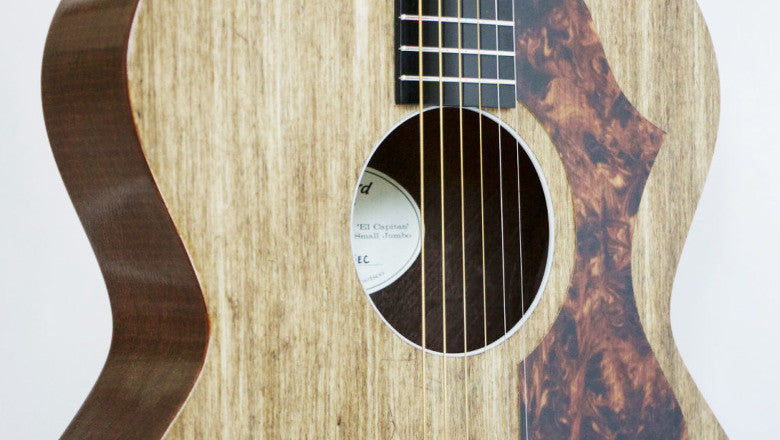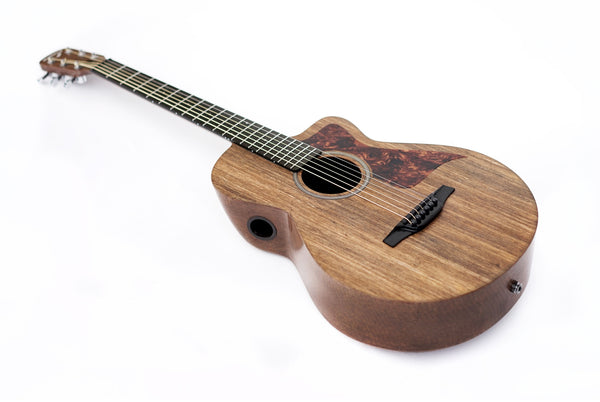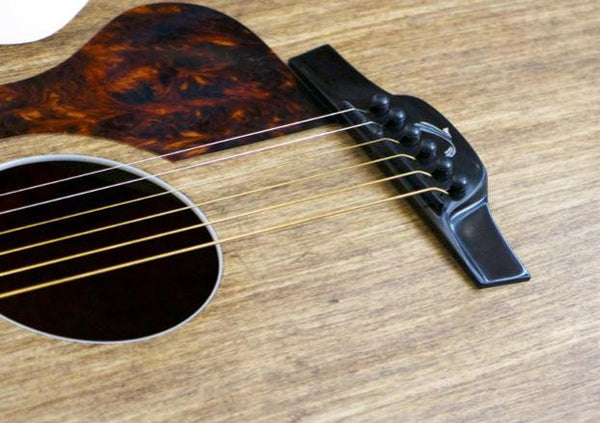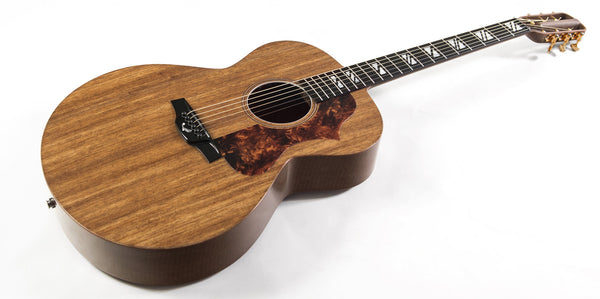AUTHOR: CHRISTOPHER SCAPELLITI | Read original article here
Guitar makers have tried a variety of materials over years to make more durable instruments. Carbon fiber has been the preferred choice of many builders, but its black, woven appearance is a turn-off to players who prefer a more traditional look.
Blackbird Guitars’ new El Capitan may be just what those guitarists are looking for. It’s made of Ekoa, a proprietary material produced from flax linen and industrial waste resin. Ekoa has the general look and sound of hardwood, and it’s both stiffer than the Sitka spruce typically used for soundboards and lighter than carbon fiber. It’s also highly durable and humidity-temperature stable, so it doesn’t require the babying that wood does. And because it foregoes the use of wood, it makes for an environmentally friendly guitar.
Joe Luttwak founded Blackbird guitars in 2005 to create guitars that could survive the wear and tear that comes from traveling and touring. The San Francisco company’s first guitar was the carbon-fiber Rider. While Rider was popular, buyers kept asking if Blackbird could make it look more like a traditional guitar—like wood. Luttwak was reluctant. As he tells Wired, “You don’t want to make something look fake because then it is fake.”
Instead, Luttwak and his partners created a new company called Lingrove to develop an alternative material that emulates the warm, open sound of old wood but is durable and sustainable. Ten years later, they came up with Ekoa—or as Luttwak calls it, “solid linen.” It consists of a 50-50 mix of flax linen fibers and resin from industrial waste.
Guitars made of Ekoa are 30 percent lighter than typical wood guitars, allowing the guitar to vibrate more easily and produce a bigger sound. El Capitan also features a hollow neck, providing an additional resonating acoustic chamber to produce even more volume.
The guitars are handmade from more than 100 pieces of Ekoa that are molded together. The body and soundboard are then bonded, resulting in a two-piece guitar that Luttwak says “is resonating in unison rather than separate parts that are at odds with each other.”
You can learn more about Ekoa and hear the El Capitan model in Blackbird’s video. For more information, visit BlackbirdGuitar.com.




